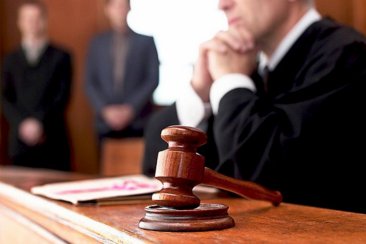I am studying in the third year of the State University of Economics and Technology.I specialize in contractual, economic and corporate law, in particular, I provide consultations and write articles.
A criminal offense is an act that is definitely tied to a certain time and place.
- The subsequent procedure of the investigation and court proceedings is aimed at establishing in as much detail as possible all the circumstances of the past that may directly relate to the criminal case and help to establish the truth.
- One of the most important elements in this process is the testimony of a witness, as a person who knows or may know the circumstances that are necessary in the process of proving within the framework of criminal proceedings and who is summoned to testify (Article 65 of the Criminal Procedure Code).
- Based on this, it is possible to determine the exclusive place of the testimony of the witness in the proof and their procedural significance, because in practice you can find cases when the circumstances established with the help of the information provided by the witness had a significant impact on the further course of the case.
- Along with this, in order to prevent gross violations of witness rights, it is necessary to highlight in detail all the features of the procedural status of this participant in the proceedings.
Analysis of the features of the legal status of a witness:
Any participant in criminal proceedings is endowed with a certain amount of rights and duties that correspond to them, and a witness is no exception.
When a person acquires the status of a witness, he will have the following rights:
- the right to be informed about what and in which criminal proceedings he is being questioned;
- to involve a lawyer during testimony; to testify in his native language, or in the language he knows well, and, accordingly, to involve an interpreter, and if there are grounds, to challenge him;
- use notes and documents during testimony;
- if the subpoena to testify caused expenses for the witness, he has the right to be reimbursed for them;
- get acquainted with the protocol that was drawn up based on the results of the interrogation;
- request changes, additions or comments to it;
- in certain cases, make a request for security.
Among the duties, the following should be highlighted:
- the witness is obliged to appear at the summons of the investigator, prosecutor, investigating judge, court; to give only truthful testimony;
- not to publicize information that became known to him during the performance of his duties and that relate to criminal proceedings.
Along with this, the CPC establishes cases in which certain categories of persons cannot be questioned as witnesses regarding information that constitutes a secret protected by law (lawyers, notaries, judges, doctors, journalists, etc.).
Another feature that applies to a limited number of persons, namely juvenile and minor witnesses, is that they can be questioned only in the presence of legal representatives, a teacher, or a psychologist.
Time limits are also set for the implementation of this procedural action.
Liability of witnesses for failure to fulfill duties:
- As already mentioned, a witness can be called to testify and his appearance is one of the above obligations.
- If the summons was duly sent to the witness, i.e. 3 days before the arrival, but the person did not appear without good reason, a fine and a pretext (forcible delivery) may be applied.
- Separately, it is worth paying attention to the valid reasons, in the presence of which the witness will be released from responsibility for non-appearance, namely: detention of the witness, restriction of his freedom of movement, occurrence of natural disasters, etc. If the witness refused to testify, or gave knowingly false testimony, criminal liability is provided for this.
Consultation of a lawyer in criminal cases:
The participation of a lawyer during the interrogation is highly desirable.
The criminal lawyer will not allow violations of the rights and interests of the person being interrogated, and if such violations were committed by the investigator, the prosecutor, he will note this in the interrogation protocol.
Along with this, the criminal lawyer will explain to the client the scope of his rights and obligations, and will advise during the course of the procedural action.
Therefore, a lawyer in criminal cases performs the exclusive role of protecting his client by monitoring the conduct of investigative actions with his participation, recording violations, collecting evidence, and providing a legal evaluation. Legal analysis of the situation is extremely important throughout the entire criminal proceedings.





























